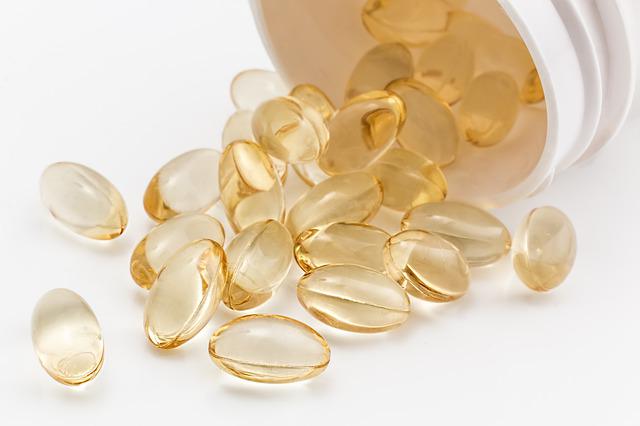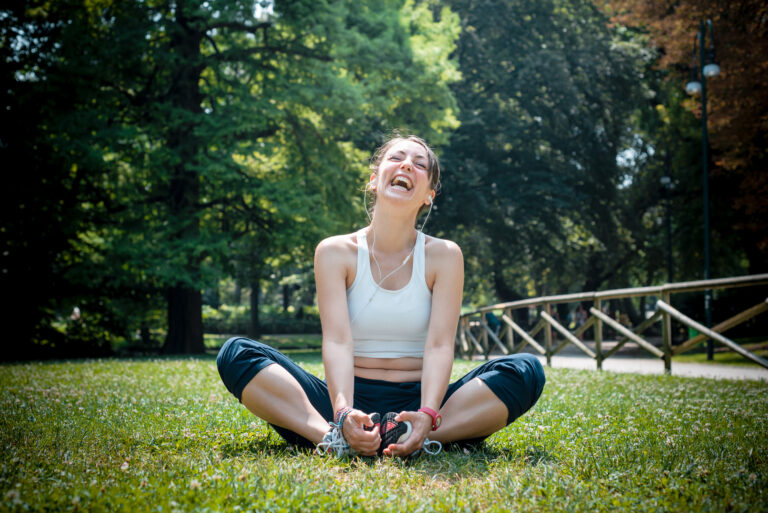What Supplements Work Best for Anxiety and Depression?

You’re reading this right now, so what does that mean? Well, chances are you’re here to find out about anxiety and depression supplements that work. We don’t blame you — anxiety and depression can steal your happiness, making life not worth living and open yourself to constant internal criticism. It’s not easy living with these feelings and emotions, so everyone should look for the best option possible to deal with these conditions.
Many varying natural supplements claim to help with depression and anxiety. I know it’s hard to make sense of the confusion. So, let’s dive in, try to make sense of all these natural supplements, and put together a plan for what you should try based on the the available research
A quick look at the article:
- Supplements can help with biological factors that can cause anxiety and panic attacks, like a lack of serotonin, vitamin B6, or iron.
- GABA (Gamma-aminobutyric acid), passionflower, valerian root, licorice root, ashwagandha, and Rhodiola are thought to be the best supplements for people who are stressed out.
- The Natural vitamins for anxiety include omega-3 fatty acids, probiotics, and B vitamins.
- Never take new vitamins without first consulting your doctor.
- You can get help for anxiety disorders from Empire Psychiatrist.
The Best Supplements for Depression and Anxiety
GABA
GABA (Gamma-aminobutyric acid) is an amino acid and neurotransmitter found in the brain that is important for the production of serotonin. GABA is important in mood regulation, and relaxation. Be careful with taking too much, as it can leave you groggy and feeling sedated. It works in collaboration with serotonin in the brain, which is one of the nervous system’s most potent “feel-good” neurotransmitters.
Best way to use it: Many vitamins help with anxiety by affecting GABA levels in the brain. GABA supplements can also be taken to help with anxiety symptoms. Daily doses are generally 100 to 200mg daily.
Passionflower
Passionflower is a calming herb that many people use at home to help them relax. It has been shown to make people happy, help them sleep better, and make them less nervous. Researchers speculate that passionflower works by increasing levels of GABA in the brain. Because passionflower can be taken in a wide array of dosage forms, this may be a very good option for people not wanting to swallow pills.
Best way to use it: Passionflower can be taken as an extract and tablet or added to teas and tinctures.
The Valerian Root
Valerian root has been used for a wide variety of issues to help people with illnesses since the time of ancient Greece. While valerian root is usually thought of as a sleep aid, this herb can also help stressed-out people. When you eat the herb, the valeric acids it contains turn into calming, “feel-good” neurotransmitters in your body, enabling you to relax your body and mind. Valerian Root generally has a “smoother effect on anxiety and sleep and is often preferred for it’s lack of ‘hangover effects’ and drowsiness. However, you will need to play around with the dosage to see what hits the ‘sweet spot’ for you. Always start with a lower amount than you think you need and work up from there. Scientists believe Valerian root can increase GABA levels in the brain.
Notice a theme here?
Best way to use it: Valerian root extract comes in both pill and liquid form. It is also sold as tea.
The Licorice Root
People like the taste of licorice root because it’s sweet, and it’s been used in many sweets and drinks in the past. Because of its effects on the adrenal glands, this herb can be good for stressed people because it can help them stay healthy. The adrenal glands in the body make the stress hormone cortisol.
Licorice helps control the production of this hormone, which allows the body to fight off stress and lessens anxiety symptoms. Licorice root can also help people who have a bad stomach, which happens to many stressed people.
NOTE: Be aware that licorice root can increase blood pressure, and is therefore not recommended in people who have cardiovascular health conditions. This is due to the chemical glycyrrhizin. For supplementation make sure you get a Deglycyrrhizinated form.
Best way to use it: Most drinks and candies that say they have licorice in them only have licorice flavoring, which doesn’t have the same health benefits as licorice root. It’s best to eat licorice in a form that has been extracted and purified. Deglycyrrhizinated licorice (DGL) is a medicinal licorice root in capsule, powder, tea, and chewable tablet form.
Ashwagandha
Ashwagandha has been used in Ayurvedic medicine for a long time to fight the effects of aging, boost energy, and lessen anxiety. Adaptogens help the body run more smoothly and keep people healthy. In natural medicine, the root is called an “adaptogen.” Today, many people use ashwagandha to improve their mood and lessen their symptoms of stress.
Tip: Start off with a low dosage before increasing to suggested dosage amounts. Ashwagandha can cause increased anxiety in some people, as well as stomach upset, and may even affect thyroid hormone. Remember, just because it’s a natural supplement does not mean it’s devoid of side effects!
Best way to use it: Ashwagandha can be found in fruit, seeds, and plant shoots. Ashwagandha is most commonly taken in capsule form.
Rhodiola
Rhodiola is the “golden root in traditional Chinese and Siberian medicine.” It has been used for a long time to help sick people. Rhodiola, like ashwagandha, is an adaptogen, which means it improves physical and mental health and mood, and resilience to stress.
Rhodiola can exert its effect relatively quickly with some studies showing within an hour of ingestion. Daily doses are in the range of 100-600mg daily.
Best way to use it: Take Rhodiola in pill form. However, it can also be found in extracts and teas.
Anxiety-Relieving Natural Vitamins
Omega-3 Fatty Acids.
This supplement is one of the best things you can take to help you deal with anxiety and depression today. You don’t make Omega-3 fatty acids inside your body which is why it’s known as an ‘Essential Fatty Acid’. They are found in your food, so it’s essential to know which foods have them. Fish, such as salmon, trout, and tuna, often include Omega-3 fatty acids in the form of EPA and DHA. If you don’t want to eat much fish, you can buy fish oil or krill oil pills at your pharmacy. The typical American diet contains disproportionately higher levels of Omega-6 fatty acids, which is thought to contribute to inflammation in the body.
If you’re looking to take fish oil supplements specifically for Depression, Anxiety, and general brain health, look for one with higher levels of EPA than DHA. High levels of EPA were found to have the best effects on mood disorders. Some reputable brands containing high levels of EPA are Carlson Elite EPA gems and Nordic Naturals EPA fish capsules. One to two capsules a day is the standard dose.
Note: Consult your Doctor if you’re on blood thinners, because Fish oil capsules may interact with these medications.
B-Complex Vitamins
B vitamins are essential for preventing stress and mild depression. Having a lot of B-complex vitamins in your diet will keep your nervous system stable and your moods in check. They are the vitamins that keep your metabolism going and regenerate cells in your central nervous system.
Note: B-Complex vitamins are effective for people who are B vitamin deficient. If your diet is rich in fruits, vegetables, poultry, and meat, you may not benefit from B vitamin supplementation.
Probiotics
Finally, and perhaps most importantly, probiotics are living bacteria that aid in maintaining a healthy digestive tract. Research is now suggesting that Probiotics could be very important as one of the tools in treating depression. The microbiota in your gut typically includes about 1 kilogram of bacteria, but stress may permanently alter this microbiome. Our microbiome, or “gut bugs,” helps us regulate our immune system when we eat probiotics. A robust immune system is essential for the proper function and health of every other part of our bodies. New research in the past few years have found ‘gut-brain’ connection and that a perso’s gut microbiota may have a more important role in mood regulation than ever thought before. While probiotics are a great supplement, make sure to get enough fruits and vegetables in your diet, as those serve as ‘Prebiotics’ otherwise known as as food for the good bacteria in your gut to allow them to flourish.
Reputable brands include Swanson’s Ultimate Probiotic Formula, Align, Florastor, and Trubiotics.
Takeaway: Some supplements may benefit both depression and anxiety but consult with a doctor before trying them.
The point here isn’t to say that you should go out and buy a supplement as your first line option. If you’re feeling anxious or depressed, it may be tempting to try an herbal supplement on your own. While some supplements may provide relief in some cases, it’s best to consult with a doctor first. Supplement dosages and interactions can vary greatly and taking the wrong one could worsen the situation. So, we highly recommend you consult with your primary care doctor before taking any supplements, just to be on the safe side.
Getting Help and Support for Anxiety Disorders
The most important thing to remember is that you will get help if you search for it. Your symptoms may not be permanent, they are not a sign of weakness, and they can be treated. If your symptoms do not subside after trying some natural cures, the best next step would be to consult with a psychiatrist. The right professional should be able to help you find the right treatment plan for your specific symptoms. Contact Empire Psychiatry to get the help you need, and remember that there is no shame in doing so.


